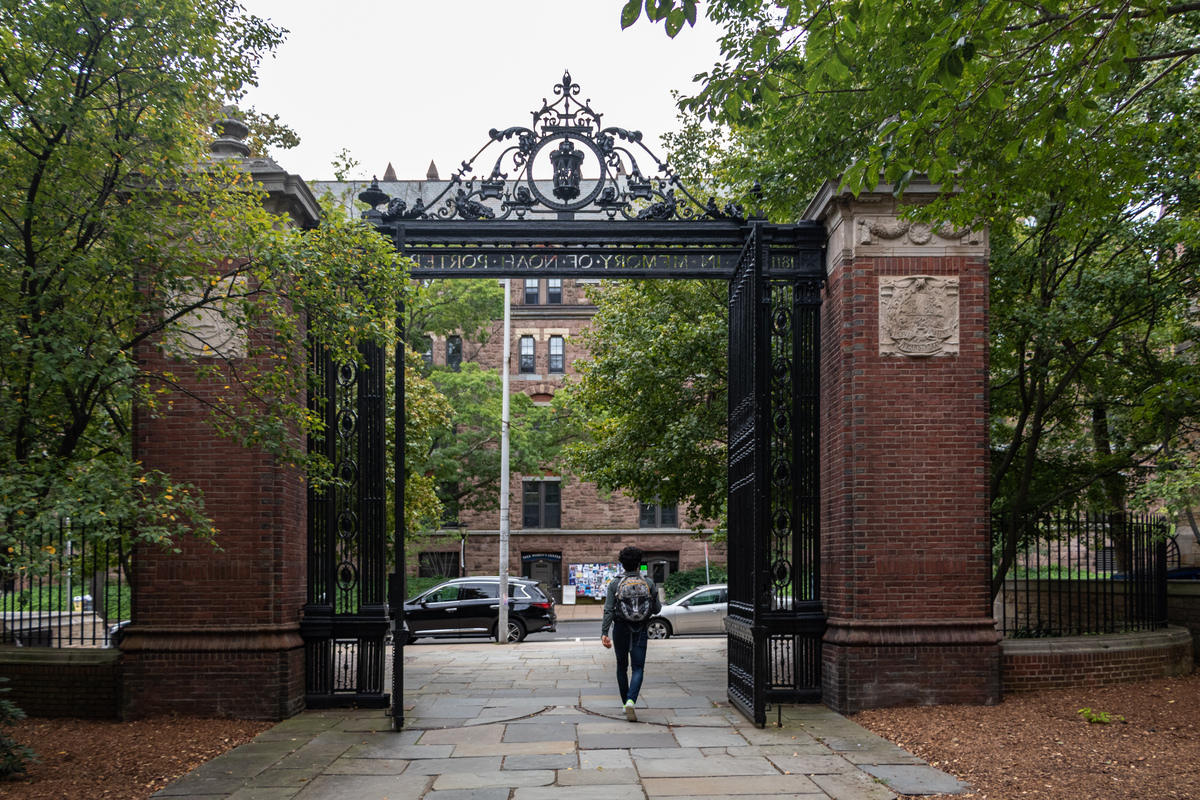Bulldogs slowly return to campus
While undergraduate classes began on Tuesday, many students are taking advantage of the two weeks of online instruction and have delayed their return to campus.

Zoe Berg, Photo Editor
While winter break has come to a close, many students have delayed their return to New Haven until Feb. 4, when Yale requires students to return ahead of the anticipated switch to in-person instruction.
This year, for the first time, students have the choice of arriving to campus before, during or after a two-week online learning period, as in-person classes are set to begin on Feb. 7. Rising COVID-19 cases both on and off campus led Yale College to delay the start of the spring semester until Jan. 25 and institute two weeks of online classes. Residential colleges have also announced that during this period, there will be no student events, dining halls will offer only grab-and-go meals and college facilities such as gyms and butteries will be closed. These new realities have affected student plans for returning to campus, as many Yalies had looked forward to seeing their friends and starting classes in person.
“The postponement of classes actually increased my want to return to campus,” Hanna Adamski ’24 said. “I loved spending time with my family and getting to know them a little more over winter break, but I couldn’t wait until I got back to my college life.”
But some students are already back in New Haven and look forward to getting settled in before the start of in-person classes.
Patrik Haverinen ’25, an international student from Helsinki, Finland, said that staying at home for the remote class period “certainly crossed [his] mind,” but he opted to return to campus instead because of difficulties that arise from being in a different time zone.
Other students had on-campus responsibilities that require they come to New Haven even before classes started up in person.
“As a FroCo, I’m required to be on campus for the first week of classes, so it would have been a bit tricky to try to stay home,” Leila Iskandarani ’22 said.
However, Iskandarani said she would have come back to campus before the start of classes regardless, as she “had no interest in taking classes remotely from home.”
Other students with flexible travel plans are considering a later return to campus, timed for shortly before classes go live again in early February. Gabrielle Roman ’25, a first year from Arizona, told the News that, given the two weeks of remote classes, she is now returning to campus 17 days later than originally planned. Roman said she plans on using this opportunity to enjoy home a little longer, visit friends and spend time with her family.
“With our spring break being shortened to one week, I no longer intend to return home during that break since the length of travel is so consuming,” Roman said. “So I’m enjoying the extra time now.”
Wiktor Babinski GRD ’22 agreed, stating that he sees “little value” in being on campus during a “complete lockdown” when he can take the same classes from his hometown in Poland.
As students return to New Haven, some have expressed concerns that the influx of people will bring an increase in COVID-19 cases to the area. However, following last Thursday’s Town Hall with Yale administrators, students are hopeful that the University will take precautions, including staggered return times, booster and flu shot requirements and twice-weekly COVID-19 testing. Students also have to complete arrival testing and quarantine, which is broken down into individual and campus-wide phases.
Haverinen explained that these sorts of restrictions may have seemed “a bit far-fetched” in the fall semester, before Omicron, but that now the situation has changed and students must adapt to the current public health conditions.
“I’m sure things will feel strange once we start online courses and I have pretty low expectations given my experience last year, although it’s (hopefully) a temporary arrangement so I’m not too wound up about it,” Iskandarani wrote in an email to the News. “I’m a second-semester senior and am really looking forward to spending time with friends and enjoying these last few months at Yale.”
While the next two weeks will be filled with much uncertainty, the students expressed excitement to begin their studies and participate in the Add/Drop period, which enables them to try new classes and expand their horizons.
“The most important quality that defines all of us as students is our ability to be understanding and appreciative of the opportunities around us,” Adamski said. “We have grown through COVID, both as individuals and as a community.”
Remote learning will continue until the start of in-person classes on Feb. 7.







